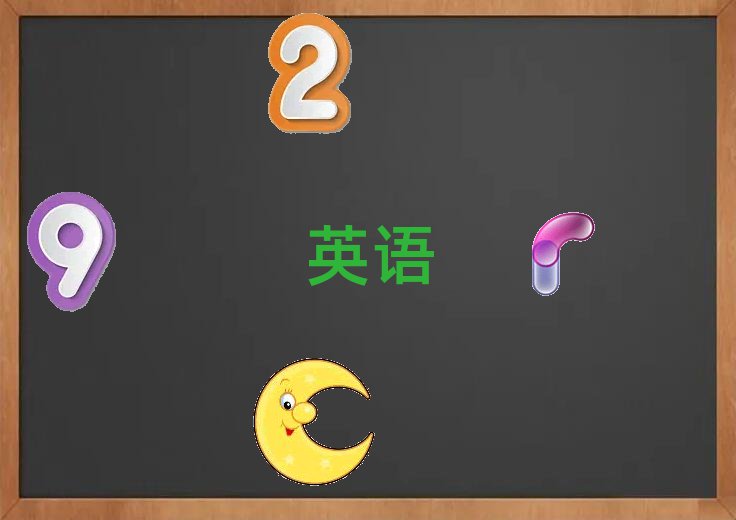課程標題:廣州番禺區實用英語口語培訓班價錢
廣州番禺區實用英語口語是廣州番禺區實用英語口語培訓學校的重點專業,廣州市知名的實用英語口語培訓機構,教育培訓知名品牌,廣州番禺區實用英語口語培訓學校師資力量雄厚,全國各大城市均設有分校,學校歡迎你的加入。
1、專業的教師團隊,掌握前沿的教學方法 2、教學經驗豐富,善于激發學生的潛能 3、善于帶動學員融入情景體驗式課堂

廣州番禺區實用英語口語培訓學校分布廣州市荔灣區,越秀區,海珠區,天河區,白云區,黃埔區,番禺區,花都區,南沙區,蘿崗區,永平街,學山塘大街,中山大道,西湖路,北京路,富華西路,新港中路,增城市,從化市等地,是廣州市極具影響力的實用英語口語培訓機構。
1210,1210+1210,1210+1210+1210,...
其次,對第二頁答題紙,如果你認為自己實在無話可說了,又不想犯下太多的語法錯誤,那么就寫滿一半或接近一半的篇幅;
根據以上講解,同學們可以按照這個套路來練習了。
D的表達很唆,出現了those who are boys這樣的結構。
The play was Neil Simon's "Rumors," and would get the opportunity to play "Chris," a sarcastic yet witty role, which would be my final performance in high school. In order to develop my character, I planned out her life just as I thought it should be, gave her the voice I thought was right, and the rest of her character unfolded beautifully from there. My director told me after the first show that "Rumors" was the best work he'd ever seen from me, and that he was amazed at how I'd
6. Some speedometers register high speeds as two hundred miles per hour, even though few cars will ever go faster than one hundred.
其次是對文本論據的考察,比如在循證題中,考生需要按照題目的選項找到文章相關的論據,一般會出現10題。
(C)-5
B選項,不僅符合the more… the more結構,同時主語we和未劃線部分的our相匹配。
(C)9
作者是怎樣證明這個觀點的呢?他通過自身作為演員的一次失敗和一次成功的經歷,證明從過去失敗經歷中吸取經驗教訓對于成功的重要性。
A, together with B, is…
It’s sunny/rainy/cloudy/windy/snowytoday。
今天陽光燦爛/雨天[face161]/有風/下雪。
二、課堂組織用語
1 Classbegins!上課。
2 Nowlet’s begin ourclass/Lesson。上課。
3 Time is up.The class is over。時間到了,該下課了。
4. Well,that’s the end of ourclass。下課。
5. Be quiet!
安靜!
6. Silence, please。
安靜!
7. Stand up, please。
起立!
8. Sit down, please。
坐下!
9. Sit up/well。
做好!
10. One, two, three, four ,four ,four. (做好的前提語)
11. Noplaying。不要玩。
12. Hands onknees。小手放在膝蓋上。
13. Sit well/straight。
坐好/正。
14. Becareful。小心。
15.Followdirections。聽指令。
16.Listencarefully。仔細聽。
三、課堂活動用語
1.Come here,please。請過來。
Come to the front,please. 請到前面來。
2.Go back to your seat,please。請回到你的座位上。
3.Let’slisten。咱們一起聽。
4.Let’smake。一起做。
5.Let’schant。一起說唱。
6.Let’ssing。一起唱。
7.Let’slearn。一起學。
8.Let’scount。一起數。
9.Let’s doactions。一起作動作。
10.Let’s watchcartoon。一起看動畫。
11.Let’s talk inEnglish。一起來說英語。
12.Let’s play a game。
我們一起做游戲。
13.Let’s watch andplay。一起看圖說話。
14.Let’s do aWarm-up。我們一起做熱身。
15. Are you ready ?
你們準備好了嗎?
16. Ready, go!
準備,開始!
17.Quicky/slowly。快點、慢點。Hurryup! 趕快!
18. By turns. /One byone。按順序一個一個的來。
19.Lookat me ,please。請看著我。
Look at me/her/him。
看我/她/他
dario: the best thing would be to quit smoking all together!
brian: yeah i know, but i am too weak!
dario: but not too weak to remember to read thexianzai english newsletters every week!
had to shout. They both want to leave. LISE: We\'ll have to leave
soon, Aunt Janet.
ANET JANET: Yes , of course you can have some tea , dear. I\'ll go
and make some.
JANE: Oh no, Lise. Stop her! You\'d better say it louder.
LISE: WE\'LL HAVE TO LEAVE, AUNT JANET.
UNCLE DAVID: You can\'t leave yet. I want to hear some more about
Canada.
LISE: But I must go back and look after Malcolm. Oh dear, thhear. I
MUST GO BACK
AND LOOK AFTER MALCOLM.
AUNT JANET: Why, what\'s the matter with him?
LISE: I TOLD YOU, AUNT JANET. HE ISN\'T WELI..
AUNT JANET: But I thought you said he was in the hotel. Where are
you staying?
LISE: We\'re camping. . . WE\'RE CAMPING.
AUNT JANET: In this weather? Well, I\'m not surprised Malcolm isn\'t
Registered consultant:Yes, and you should get there early so you can be the frst in line.
傳統的學習法:單詞+語法++做題對考試有些用處,但我用此法學了近10年英語卻一無所成。要提高英語水平首先要打通兩關:耳朵和嘴巴。比較好的方法就是聽說結合。不要忘了 聽 這個字左邊是一個 口 。聽和說是不分家的。要提高必然要說,要隨心所欲說也必須要不斷聽。記住聽的時候要一句一句模仿,播音員怎么說你怎么說,要練的盡可能和播音員相近。不要理會所說的句子是什么含義,更不要去翻譯,你所做的就是鸚鵡學舌。要以句子為單位,不要以段落為單位。當水平提高了才可以段落為單位模仿、復述。你覺得老外語速快是因為你的嘴巴不能以這樣快的速度來說,能看得懂文章卻聽不懂,是因為你不能像老外那樣正確地讀這篇文章。你讀的文章和老外對比會發現,你讀得不對,沒有掌握發音技巧,尤其是連讀、爆破音、省音、節奏等。如果你讀得和老外一樣正確,你可不可能聽不懂呢?記住:你能正確說出來,讓老外讀給你聽,你也能聽懂。你能以多快速度來說英語,你的耳朵就能接受多快的語速。聽力還有一個難點就是你對常用單詞和短語的反應速度。用我說的方法邊聽、邊模仿再背誦就可以突破這個難點。我之所以能聽懂,是因為500遍的模仿背誦,使我對新2的掌握程度達到了 化 的地步。新2中都是常用的單詞、短語和句型,而常用詞匯、短語和句型,大多數都包含在新2中了,因此聽懂就容易了。原先做listen to this的題覺得挺難,現在覺得并不難了。
廣州番禺區實用英語口語培訓學校成就你的夢想之旅。學實用英語口語就來廣州番禺區實用英語口語培訓學校





 點擊交談
點擊交談

